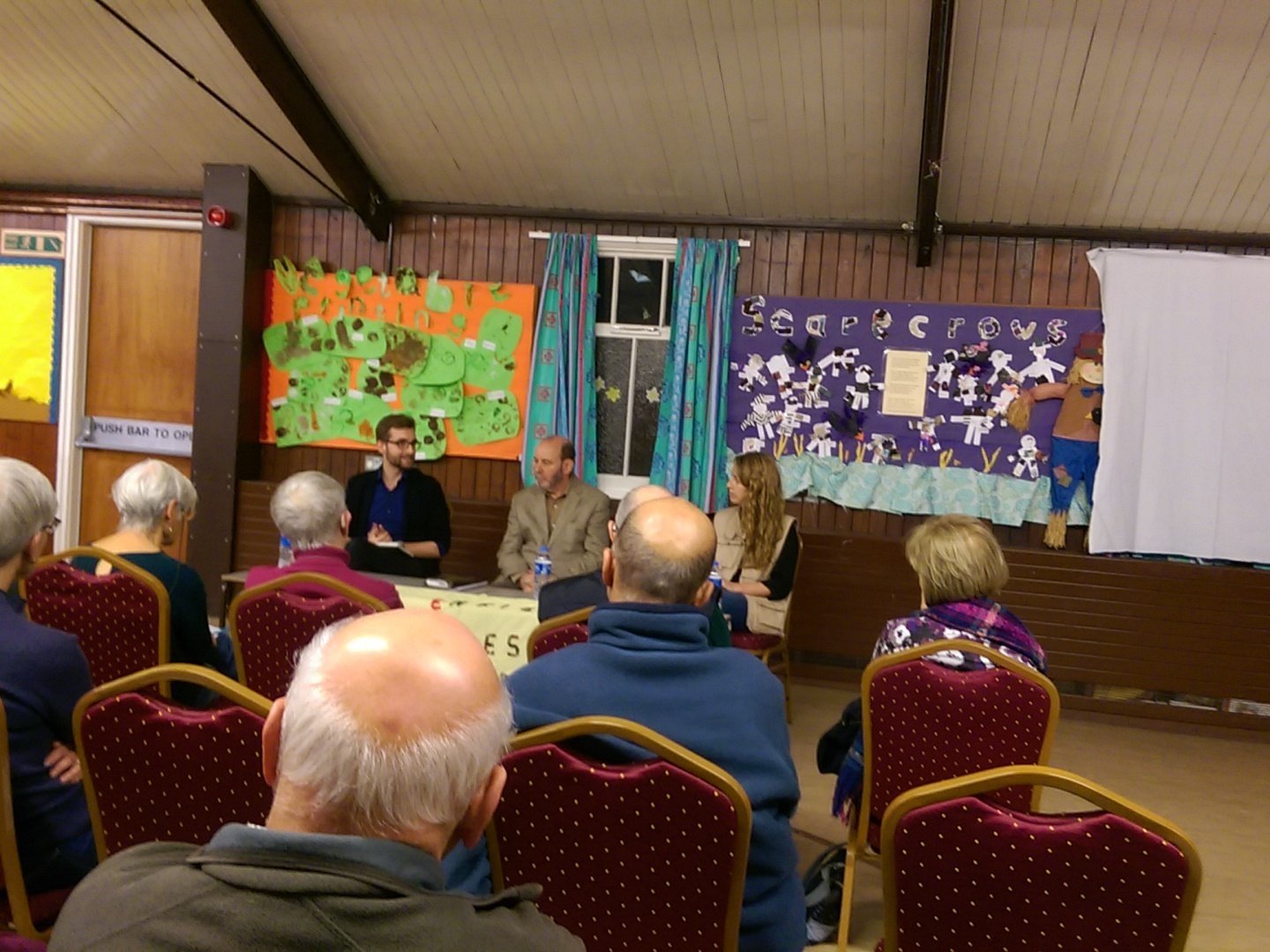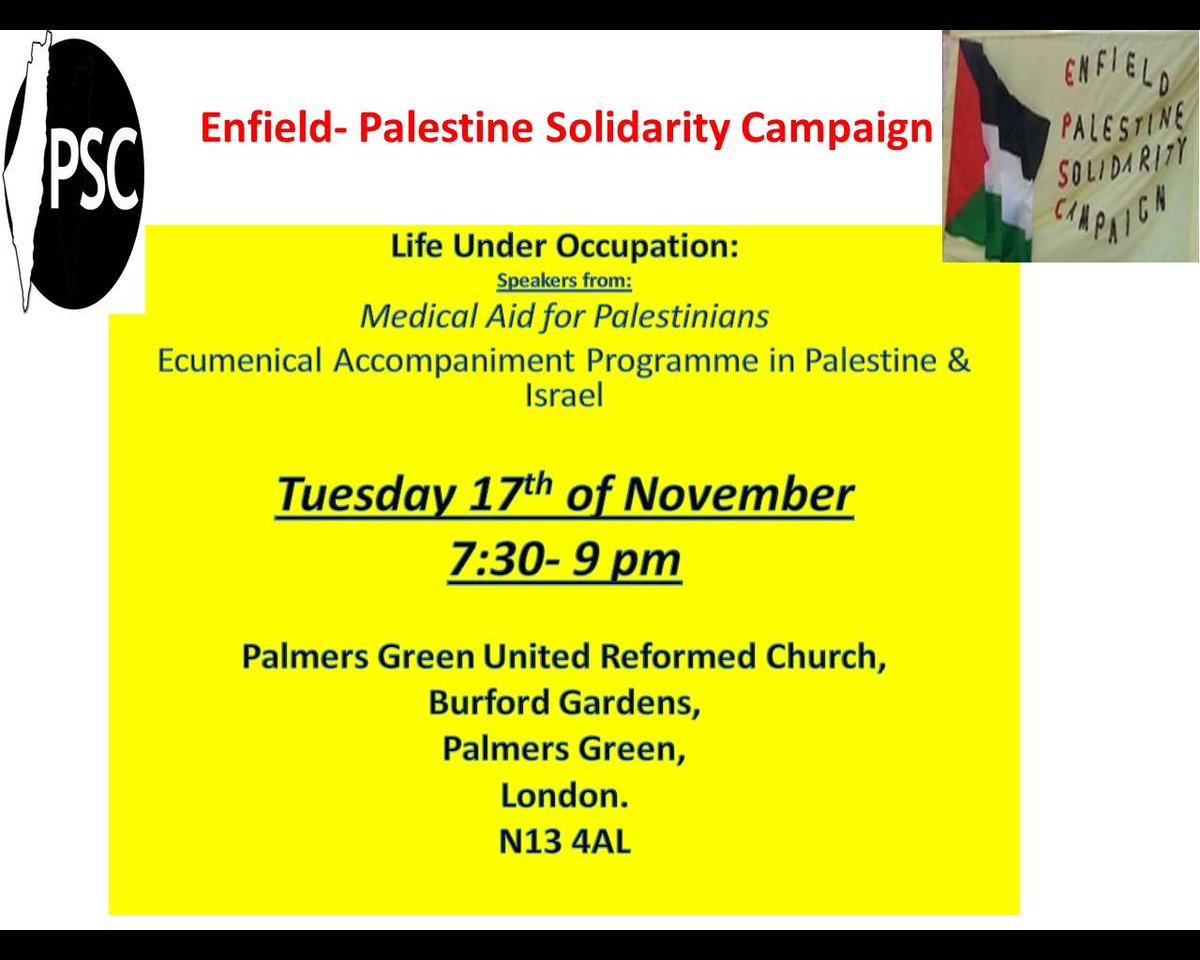Life Under Occupation

Enfield branch
of Palestine Solidarity Campaign arranged this talk with guest speakers Rohan
Talbot from Medical Aid for Palestinians (MAP) and Sophie Wickham from
Ecumenical Accompaniment Programme in Palestine and Israel (EAPPI) and chaired
By Roger Hallam.
Sophie gave a
presentation on her recent visits to the Occupied Palestinian Territories where
she spent time in a village near Bethlehem and a village in the Jordan Valley.
She wanted to share few stories she experienced, in particular stories that
never made it as news headlines, but they represent the daily lives in the
Occupied terrorises. First story was of Rana and her brother Ahmad who are
living in a village near Bethlehem and their school asked for the presence of
EAPPI. Ahmad, who was 8 at the time, was arrested by Israeli army, he was taken
from school in front of the other children despite his young age and the pleas
from the school teachers, detained and interrogated for few hours without the
presence of his parents or legal representation. The children had to cross a
very busy road to get to the school, the school repeatedly asked for traffic
calming measures to be put on the road, but Israeli Military Administration
refused. The children had to walk by an Israeli army presence just outside the
school, which they found very frightening and intimidating. Sophie also talked
about Dayf and his son Oday, who lived in a village in the Jordan Valley, their
house was demolished by Israeli authorities, and so other families in the
village making more than 50 people homeless. House demolitions is a known
Israeli policy and this year thus far almost 500 Palestinian houses have been
demolished. Israel refuse to gran planning permissions to most of the
applications, on average 90% of planning applications are rejected without
giving a reason.
Rohan gave a
brief history of MAP and how it was established as after Sabra and Shateila
refugees cam massacre in 1982. MAP currently offers support, training and
healthcare to Palestinians in Gaza, the West Bank and refugee camps in Lebanon.
Rohan highlighted some horrific statistics about the situation in Gaza, for
example 35% of drugs stock are at Zero stock. Also 100,000 have been made
homeless last year due to the war and so far none of the building has started.
This is mainly due to the blockade/ siege. He also highlighted how the
unemployment is causing more poverty and that resulting in more deterioration
in health, wide spread of malnutrition and anaemia in children, and many other
effects. Rohan then moved to talk about MAP activity in Lebanon, stating that the
situation of Palestinian refugees living in the diaspora has been getting less
attention despite the chronic and sever problems they face. Among some of the
stories he mentioned was one of a family he visited at a refugee camp in
Lebanon, upon their arrival the woman went into labour and she left to
hospital, her husband stayed at home, when they questioned that the husband
explained that because they are from a Palestinian refugee camp in Syria and
fled to Lebanon recently, he cannot afford leaving the camp, if caught by the
policy he might be deported or fined which he cannot afford either.
The session
was then open to the attendants to ask questions which they were many, most
focused on the difficulties faced by Palestinians, efforts made to help and
what more can be made, the Israeli population perception of the conflict and of
Palestinians, and media bias and social media.
for more info about Enfield PSC please contact enfieldpal@gmail.com
www.enfieldpsc.btck.co.uk

No comments:
Post a Comment